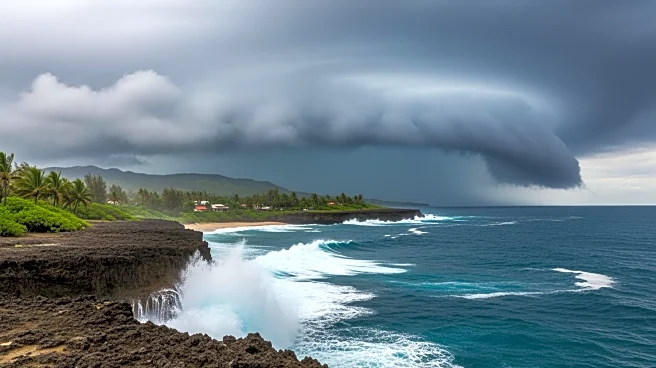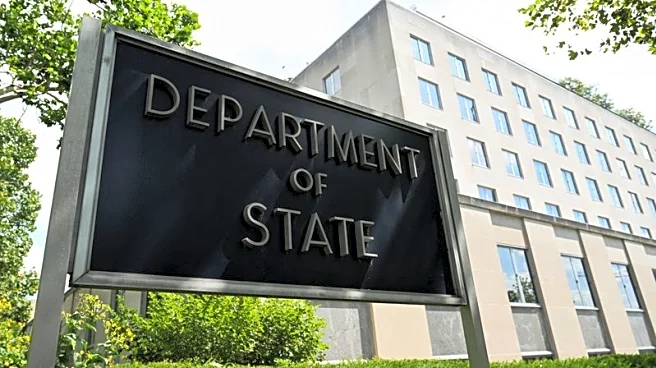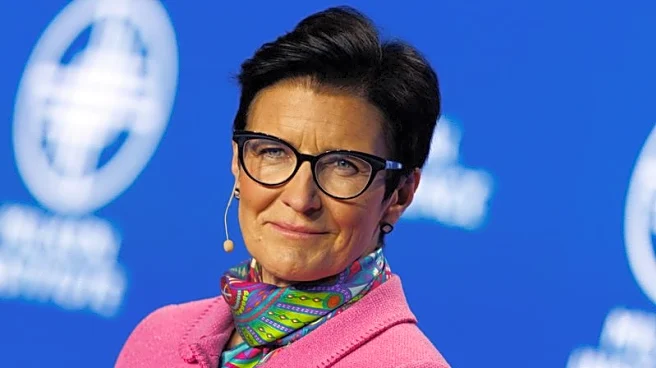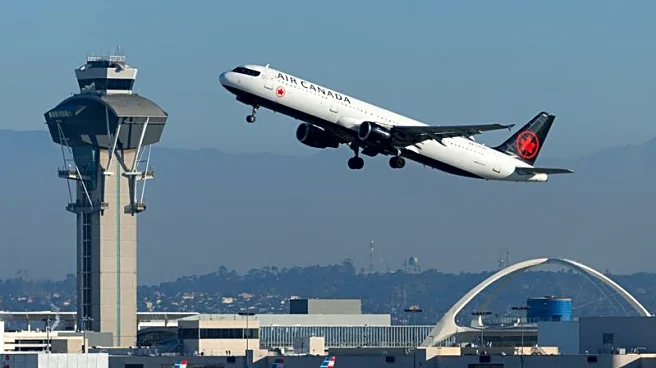What's Happening?
Hurricane Melissa, a Category 5 storm, recently devastated Jamaica with 185-mile-an-hour winds and a 13-foot storm surge, causing extensive damage to homes, infrastructure, and the electrical grid. Despite Jamaica's investment in coastal defenses such
as mangroves and seawalls, the storm's intensity overwhelmed these measures, resulting in estimated insured losses exceeding $4 billion. The hurricane's impact underscores the growing challenges Caribbean nations face in adapting to increasingly frequent and severe climate-driven storms. As delegates gather for the COP30 summit in Brazil, the focus is on the financial and practical difficulties of climate adaptation, with calls for industrialized nations to increase funding to help developing countries cope with climate change impacts.
Why It's Important?
The devastation caused by Hurricane Melissa highlights the urgent need for effective climate adaptation strategies in the Caribbean, where extreme weather events are becoming more common. The financial strain on these nations is exacerbated by rising debt and limited resources, making it difficult to build resilience against such disasters. The situation calls for a shift in perspective, viewing adaptation as a long-term development strategy rather than a one-off investment. This approach is supported by influential figures like Bill Gates, who advocates for increased investment from wealthy nations responsible for the majority of climate change. The outcome of the COP30 summit could influence future funding commitments and adaptation strategies, impacting the ability of Caribbean nations to withstand future climate-related challenges.
What's Next?
As Caribbean nations continue to face the threat of extreme weather, there is a need for strategic planning in rebuilding efforts. Experts suggest focusing on infrastructure projects that offer multiple benefits, such as energy solutions and green spaces, alongside resilience. Additionally, a 'ridge-to-reef' approach to climate adaptation is recommended, involving reforestation, riverbank stabilization, and improved drainage to mitigate inland flooding. Changes in zoning laws to prevent building in high-risk areas are also advised. The COP30 summit presents an opportunity for international collaboration and increased funding commitments, which could significantly impact the region's ability to adapt to future climate challenges.
Beyond the Headlines
The challenges faced by Caribbean nations in adapting to climate change are compounded by the short-term nature of donor-driven projects, which often lack sustainability once funding cycles end. Incorporating adaptation projects into long-term national planning and budgeting is crucial for lasting impact. Additionally, the focus on coastal defenses may overlook the importance of inland resilience, which is vital as hurricanes like Melissa cause significant flooding and landslides in mountainous areas. Addressing these less visible but consequential issues is essential for protecting lives and ensuring recovery in the aftermath of such disasters.
















